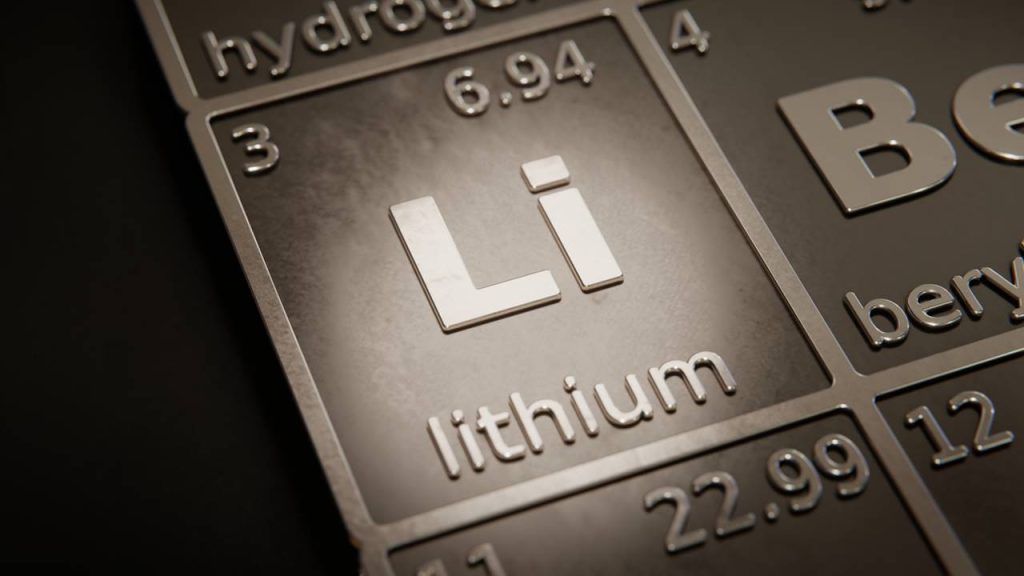Outside of psychiatry, lithium is used in ampoules with minimal doses for various disorders. However, given the effects of its excess, it should not be done without supervision.

Lithium is considered the standard treatment for bipolar disorder. In addition to being used in drugs for exclusively medical use, it is also used in Oligotherapy to treat some emotional disorders.
However, as suggested by a Spanish study published in the International Journal of Bipolar Disorders over the past two decades, there has been a downward trend in lithium use in several developed countries, including Spain. The main reason for not using lithium salts, according to this research, is the adverse effects it would cause.
LITHIUM CONTROVERSY
Lithium is a rare element in our body and food. In fact, the body barely contains 2 or 3 mg. It is known to be one of the lightest elements, both on the periodic table and those that make up our tissues. There are doubts about whether lithium can be classified as an essential mineral, that is, an element necessary for life and whose deficiency can cause diseases.
Although it does not appear as such, many doctors and scientific articles do consider it so.
LITHIUM: THE ADVERSE EFFECTS OF ITS EXCESS
Although there are no known problems due to its deficiency, the effects derived from its excess have been described.
This has been proven with lithium carbonate, a medication used in the treatment of moderate or severe psychiatric disorders (such as manic-depressive syndrome), or in the treatment of severe alcoholism, although in these cases, obviously, the use must always be medical.
According to a review of studies published in the Journal of the Spanish Association of Neuropsychiatry, lithium is highly toxic to the nervous system, which can cause tremor in the hands, slowing down thinking and decreased creativity. This review suggests that in some patient’s long-term treatment with lithium may lead to chronic renal failure and affect the digestive system. Its effects on the nervous system often cause tremor in the hands, slowing of thinking and decreased creativity. Also, an excess of lithium can affect the thyroid gland.
Other but beneficial side effects of lithium have been questioned, although they are likely, such as that it stimulates the immune system, increases the number of white blood cells or can prevent the development of cancer.
WHAT EFFECTS DOES LITHIUM HAVE ON THE BODY?
Lithium is a rare element in our body and food. In fact, the body barely contains 2 or 3 mg. It is known to be one of the lightest elements, both on the periodic table and those that make up our tissues.
Lithium stabilizes serotonin transmission in the brain, so it influences mood and mood.
WHERE IS LITHIUM FOUND?
Lithium can be found in some foods, such as algae or cane sugar, which contain moderate amounts, but especially in certain bicarbonate and litinic waters, such as in the old “lithium waters”, today practically disappeared from the market. In these cases, the lithium content is a few milligrams, with few or no side effects.
Many natural gaseous waters of volcanic origin contain lithium in their composition; You just have to look at the label to check it.
These waters are healthy, as long as you do not have any contraindication regarding the consumption of baking soda (as happens when you have hypertension, severe kidney or liver disease …), and exert a generally calming and relaxing action, both on the nervous system and digestive and muscular.
THE USE OF LITHIUM IN OLIGOTHERAPY
Lithium, on the other hand, is used in Oligotherapy to treat anxiety, irritability, mild depression and skin irritations of psychosomatic origin.
It is suitable in children (over 6 years) in cases of school or family instability or maladjustment, and in older people with aggression or senile dementia.
The dose is low, 0.2 mg/day (psychiatric is 600-1,000 mg/day), and is taken by placing a vial under the tongue every morning.
However, the use of lithium Oligotherapy should also be restricted exclusively to the healthcare professional. Self-medication is not recommended.






